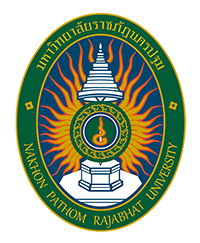 การประชุมวิชาการระดับชาติ ครั้งที่ 16
|
| Title | Factors affecting Teaching Efficiency of Teachers from Surawiwat School, Suranaree University of Technology |
|---|---|
| Other Titles: | ปัจจัยที่ส่งผลต่อประสิทธิภาพการสอนของครูโรงเรียนสุรวิวัฒน์ มหาวิทยาลัยเทคโนโลยีสุรนารี |
| Authors EN |
|
| Authors TH |
|
| Keywords | Teaching efficiency,Teaches workload,Instructional supervision |
| Issue Date | 13-Aug-2024 |
| Publisher | The 16th NPRU National Academic Conference Nakhon Pathom Rajabhat University |
| Abstract | The quality of education depends on the quality of teachers and their capacity for teaching to enhance students’ learning outcome. The objectives of the research were 1) to analyze teaching efficiency levels, and 2) to analyze factors affecting teaching efficiency. The research conducted correlational research methodology. The samples were 23 teachers from Surawiwat School who were selected using purposive sampling techniques. The research instrument was a teaching evaluation form assessed by students. The evaluation form is divided into five dimensions consists of teaching preparation, teaching, using instructional materials, measurement and evaluation, and exemplary behaviors, with reliability coefficients between .854 and .926 for each dimensions. Data analyses were conducted using descriptive statistics and multiple linear regression analysis. The factors included in the analysis were the number of teaching hours, the number of subjects, and the number of instruction supervisions within the school.
The research findings revealed that the overall teaching efficiency level was the highest level, with a mean score 4.54 (SD = 0.14). When ranking the mean scores from highest to lowest, exemplary behaviors, teaching preparation, using instructional materials, measurement and evaluation, and teaching were listed, respectively. Moreover, the teaching efficiency of teachers was found to be affected by the number of subjects and the number of instructional supervisions they received, while the number of teaching hours does not demonstrate a significant impact on teaching efficiency. The predictor variables include in the model explained 57.2% of variance in teaching efficiency. The findings indicate that an increasing in teaching subjects and gaining more instructional supervision will negatively impact on teaching' efficacy. Consequently, administrators and related personnel should manage teaching workload and teaching supervision plans appropriately. |
| ISBN | 978-974-7063-46-2 |
| URI | https://rdi.npru.ac.th/conference16 |